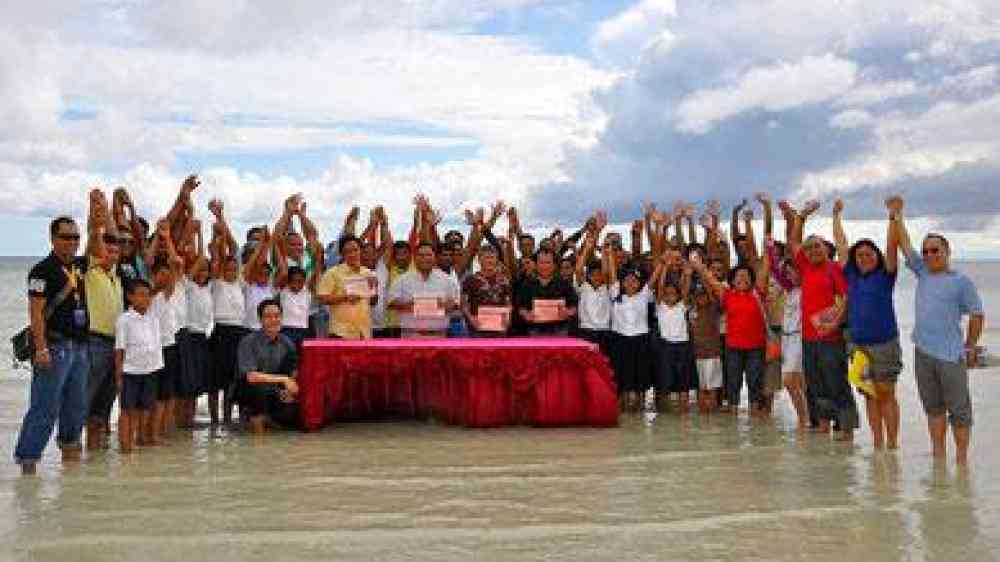Philippines: Climate change a fundamental threat to development - World Bank

World Bank Vice President and Special Envoy for Climate Change Rachel Kyte says if ‘we don’t confront climate change, we won’t end poverty’
Manila – Countries of the world should confront climate change squarely as part of the global efforts to end poverty and boost prosperity. It’s a challenge that needs collective action by national governments, development partners, private sector, civil society, and local communities.
This was the key message of Ms. Rachel Kyte, World Bank Group Vice President and Special Envoy for Climate Change during her three-day visit in the Philippines from May 20-23 which included her participation at the World Economic Forum; meetings with government officials, civil society organizations, and a visit to several communities in Leyte hit hard by Typhoon Haiyan (Yolanda).
“During my visit to several municipalities in Leyte, I have seen how communities – working with local and international NGOs, local governments, national government agencies, private sector and development partners – are beginning to rebuild their lives. The task of rebuilding, in fact seizing the opportunity to build back better, is enormous. If funds can move more smoothly to those accountable for development at the local level and with the support of partners, I believe the people in the Visayas affected by the typhoon will overcome this challenge,” said Ms. Kyte.
Time is of the essence and the World Bank Group will continue to find and fund creative ways to support Filipinos, she said.
Speaking before participants of the World Economic Forum on East Asia on May 21, Ms. Kyte emphasized that climate change is not just an environmental challenge, but a fundamental challenge to economic growth and financial stability.
"Countries need to take bolder action now before the impacts of climate change put prosperity out of reach for millions and roll back decades of development. If we don’t confront climate change, we won’t end poverty,” Ms. Kyte said. “The cost of inaction far exceeds the cost of action.”
Governments, she said, can design and enforce policies that put resilience at the core of development. Resilience should also be at the core of the private sector’s investment decisions. And this will not happen, she added, without the involvement of communities and local leaders.
The Philippines is among the most vulnerable countries in the world to weather-related extreme events, earthquakes, and sea level rise, and is already feeling the consequences of climate change:
• Over the last five years, the country has experienced severe weather events that resulted in severe damage and losses.
• Typhoons Ondoy, Pepeng, Sendong, and Pablo claimed the lives of more than 3,000 people, caused economic damage and losses amounting to approximately US$5.7 billion, and affected new areas such as Mindanao, which historically have not been hit by strong typhoons.
• In November last year, Typhoon Haiyan (Yolanda), one of the strongest typhoons to ever make landfall, hit the country and left a trail of devastation in Central Philippines. Typhoon Haiyan (Yolanda) claimed the lives of more than 6,000 people. Government estimates of total damage and losses reached US$12.9 billion.
In response to the country’s vulnerability to climate-related events, Philippine policy makers have come up with policies (Climate Change Act and the Philippine Disaster Risk Reduction and Management Act, for instance) focusing on climate change adaption. In 2012, Congress enacted the People’s Survival Fund to source financing for climate action by local governments. The attention must now be on implementation.
In her speech at the WEF last Wednesday, Ms. Kyte said that the World Bank is supporting the design of a Climate Change Adaptation and Disaster Resilience Fund being developed by the government.
The fund, she noted, will be designed to build resilience at the national, local government and individual level. It should be able to finance targeted investments to improve resilience to climate change and natural disasters and provide funds to local governments for climate change adaptation and disaster risk reduction, as well as recovery and reconstruction. Between the government, international partners and the private financial and insurance sectors, all the means are available to the Philippines to be the first country to ensure such a comprehensive approach to funding resilience.
“The poor are most affected by disasters, with the destruction of their already limited assets and means of living. Disasters also push people, who previously were not poor, into poverty,” said World Bank Country Director Motoo Konishi. “This is the very reason why the World Bank is supporting measures, programs and projects that strengthen the country’s capability to deal with natural and man-made disasters.”